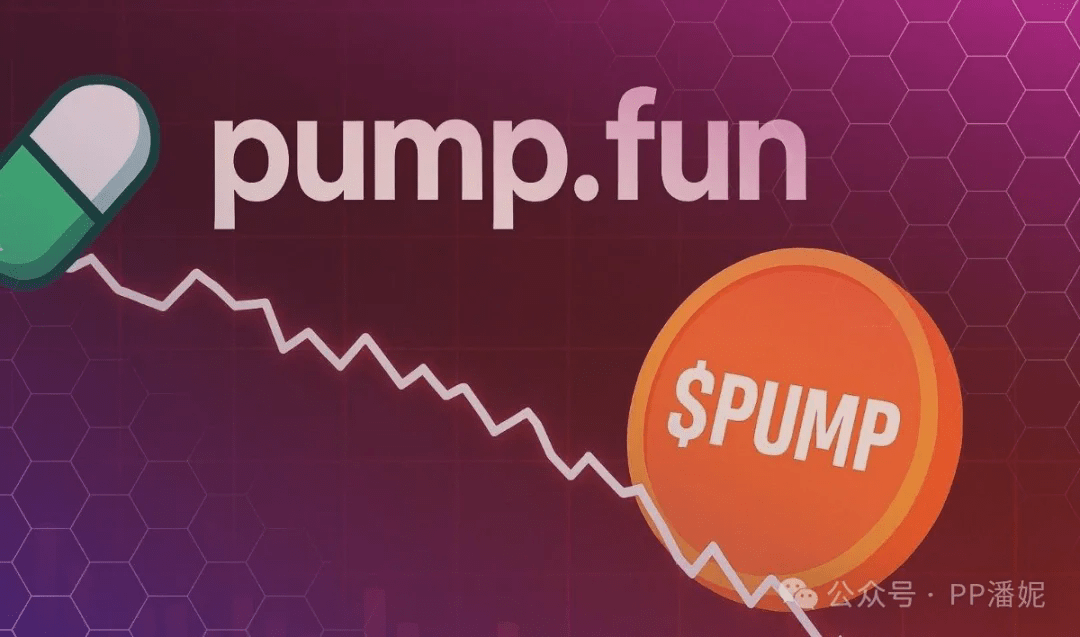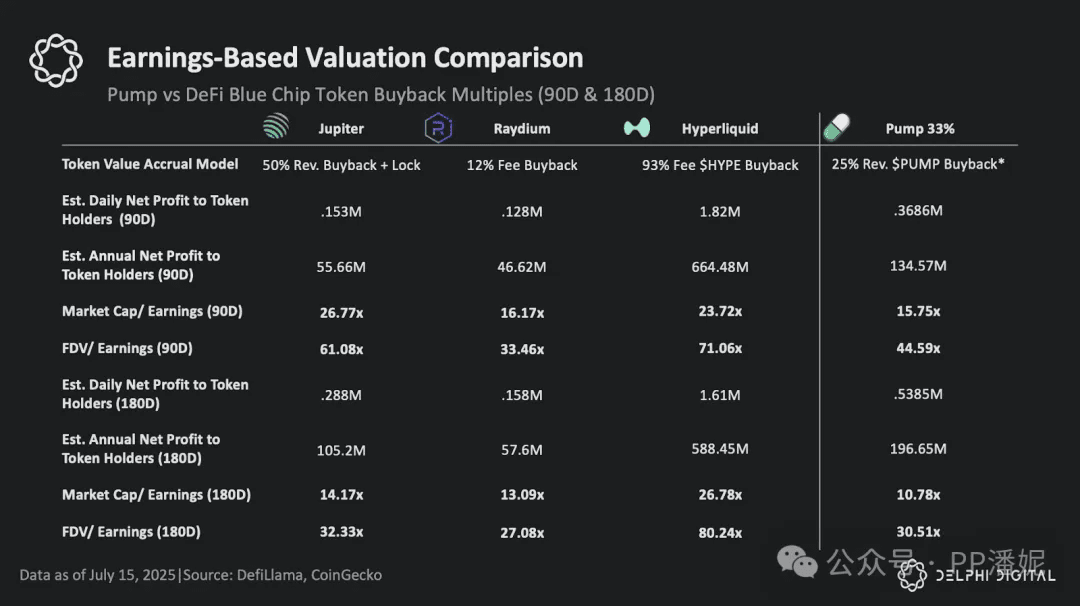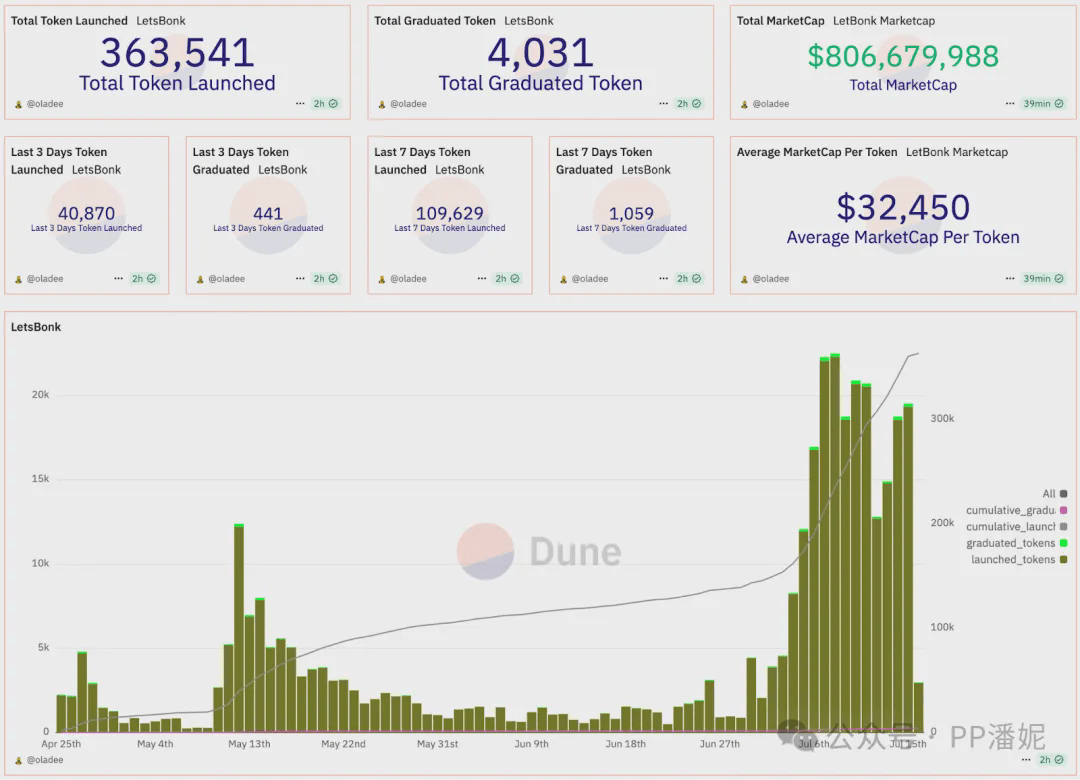Hello everyone, I am Panny.
Recently, Pump.fun launched an aggressive buyback plan, transferring approximately $16 million worth of 101,900 SOL to purchase 3.04 billion PUMP tokens at an average price of $0.006, aiming to recover from a 75% catastrophic drop after the token's $500 million presale launch.
This buyback initiative was implemented after PUMP plummeted from a pre-market high of $0.0072 to a low of $0.005 within 24 hours of its launch on July 12, triggering massive shorting by whales and panic among investors.
The platform has allocated $30.6 million in fee revenue for the buyback plan, of which 118,351 SOL has been spent on token purchases.
According to on-chain data, this buyback represents a significant strategic shift for Pump.fun, which had previously sold approximately 4.1 million SOL at an average price of $180 since May 2024, totaling $741 million.
The platform has systematically converted fee revenue through the Kraken exchange instead of supporting its token price.
The buyback plan allocates 25% of revenue to token holders, generating approximately $538,000 in buyback amounts daily based on data from the past 180 days.
This means that $196.6 million flows directly to token holders each year, while PUMP's current trading price is discounted compared to competitors like Jupiter ($JUP) and Raydium ($RAY).

The strategic buyback plan aims to restore investor confidence.
The buyback plan aims to address concerns about the significant concentration of whales that led to the initial crash.
About 340 wallets control over 60% of the presale distribution, with 189 wallets reaching the $1 million investment cap during the public sale.
Multiple presale participants immediately cashed out, earning substantial profits, with one whale buying $1 million worth of PUMP and selling it for $1.5 million, realizing a $500,000 profit.
Another investor bought $1 million worth of stocks and immediately sold them for $1.097 million after the release.
The structure of this token immediately creates selling pressure, with 33-55% of the total supply unlocked upon issuance, indicating potential selling pressure of billions of dollars.
At least $142 million in token distribution flows directly to centralized exchanges for instant liquidity, with most tokens unlocking within 72 hours.
Major exchanges prioritize the listing of perpetual futures over spot trading, allowing retail investors to actively short before entering the spot market.
A confirmed 'whale' opened a short position worth $8.5 million, while the short financing rate on decentralized platforms reached an annualized 1,100%.
Market dynamics challenge the long-term effectiveness of buybacks.
According to Delphi Digital researcher Simon's analysis of Pump.fun's buyback strategy, the strategy may have limitations as token prices rise.
Of the $70 million in monthly revenue, 50% is allocated for buybacks, which can purchase about 5.25% of the total supply in 12 months, down from 8.4% when prices remain unchanged.
The current valuation is a fully diluted value of $6 billion, with a market cap of $2.12 billion, and a price-to-earnings ratio of 10.78 based on 180 days of past data.

Compared to competitors, this figure is more favorable, with Jupiter's P/E ratio at 14.17 and Raydium's at 13.09.
However, the increase in token prices significantly reduces the effectiveness of the buybacks.
If PUMP appreciates by 10% monthly while maintaining a fixed buyback volume of $35 million per month, the percentage of recovered supply will sharply decline as prices rise, requiring price stability or revenue growth to maintain buyback pressure.
Unfortunately, recovery efforts face resistance from LetsBonk's outstanding performance metrics.
Its competitors have issued a total of 363,541 tokens, of which 4,031 have been fully listed for trading, with a total market cap reaching $806 million.

LetsBonk's average market value per token is $32,450, while Pump.fun's tiered tokens average $34,070.
Pump.fun faces greater challenges, including a 75% decline in trading volume since January and an 80% reduction in daily trading volume over six months.
The platform processes about $1.25 billion in meme coin trading volume daily, with 34,110 meme coins issued, and 398 have entered full trading phase.
Welcome to the Panny battle group!
I am Panny, a long-term coin holder. No contracts, no leverage. Earning coins in a bear market and earning USD in a bull market. If you are like this, then welcome to join the Panny battle team.
Let's traverse the bull and bear markets together, huddle for warmth, and strive to be a tougher leek.
